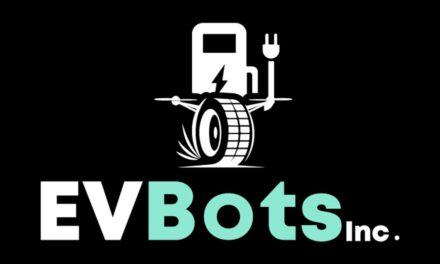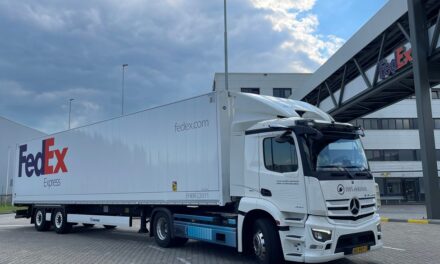
FedEx chief: Electric vehicles achieve 70% lower operating costs
FedEx chairman Frederick W Smith said this week that electric vehicles are cutting operating costs by more than two-thirds compared to vehicles with internal combustion engines. He said to expand use of the technology, companies like his were working with manufacturers to bring down the up-front costs of the vehicles compared to conventional alternatives.
Smith was speaking before the National Association for Business Economists on Tuesday about how America could revitalise its economy.
One of his key recommendations was to reduce the nation’s reliance on imported petroleum – with about 70% of America’s daily oil consumption currently used in transportation.
Smith acknowledged the progress that the US is now beginning to make in developing electric vehicles, and pointed to FedEx’s recent expansions of its own electric vehicle fleet, which has a number of new Smith Electric vans on the way.
“We’ve been working with manufacturers to try to get capital costs down so that they’re truly competitive with conventional vehicles,” said Smith on Tuesday.
“The operating costs per mile are already about 70% less than ICE (internal combustion engine) powered vehicles. We want to see the day soon when it’s not just FedEx, but your local pizzeria and dry cleaners delivering with electric vans, because they can afford them.”
Lower cost
The Memphis-based shipping giant currently has 408 hybrid-electric and all-electric vehicles in service around the world, increasing its fleet size by nearly 20% through 2011. The fleet has logged 9.5m miles of service so far.
The latest annual report from FedEx suggests operational and maintenance costs for electric vehicles could be as much as 80% less than equivalent petroleum-fuelled vehicles.
As well as lower energy costs, electric vehicles have fewer moving parts and require less servicing than those with internal combustion engines, according to the US EPA.
Smith, who has turned FedEx into a vocal member of the Electrification Coalition, a not-for-profit business advocacy group pushing the case for electric vehicles in the US, said of alternative fuel vehicles, electric vehicles were “particularly appealing” because so much infrastructure is already in place, in the form of the existing power grid.
“Since the grid draws from diverse fuel sources, many homegrown and renewable, the price of electricity has been pretty stable,” he said. “With most recharging taking place at night, it takes advantage of off-peak capacity.”
The FedEx chairman applauded the efforts of the Obama Administration in supporting efforts to improve battery technology in the electric vehicle sector, with the batteries a key factor in the up-front capital costs of electric vehicles compared to conventional alternatives.
FedEx is working towards improving its vehicle fuel efficiency by 20% by 2020.
Along with its electrified fleet, the company is also supporting development of natural gas powered vehicles for heavier trucks, but Smith said the cleaner fuel needs “significant – and quite expensive” infrastructure for fuelling nationwide.












